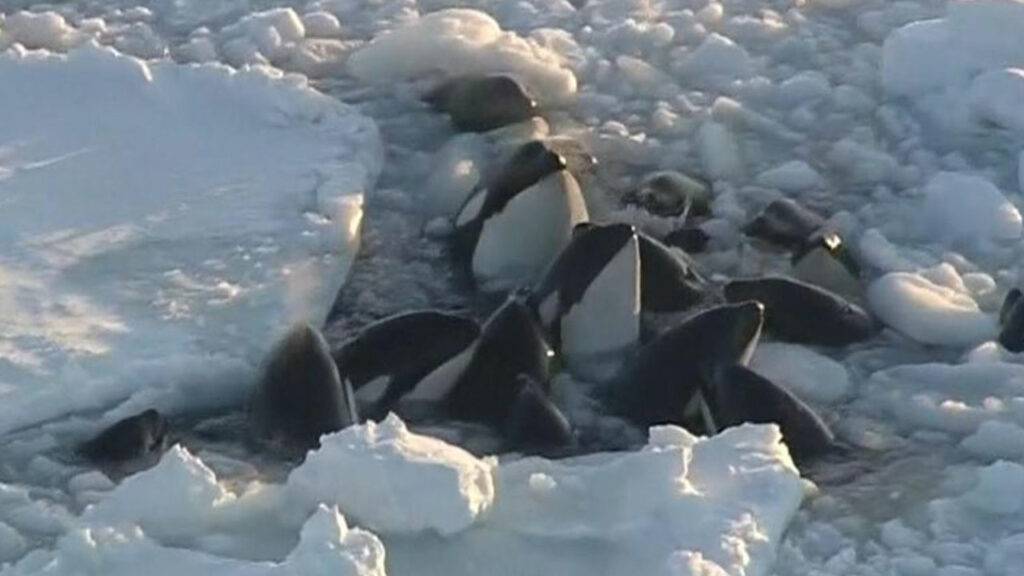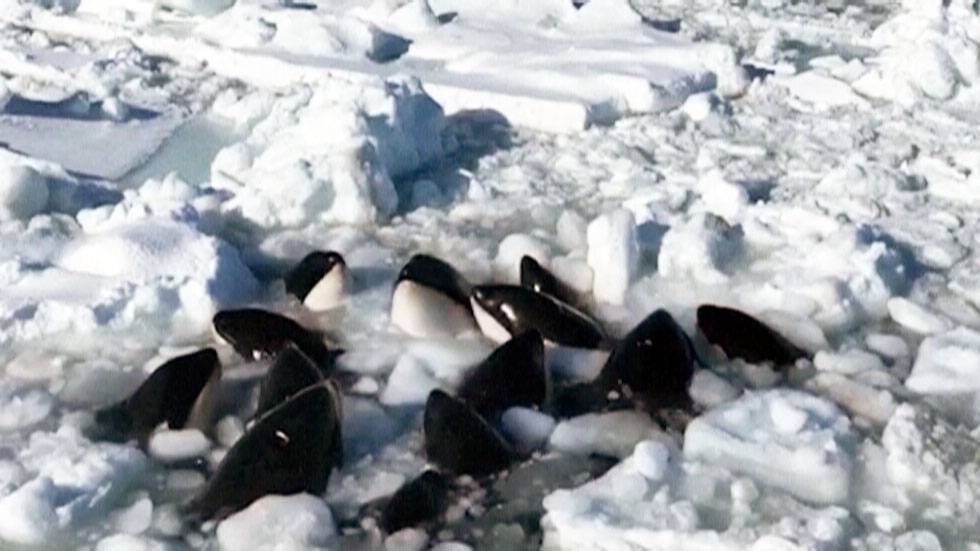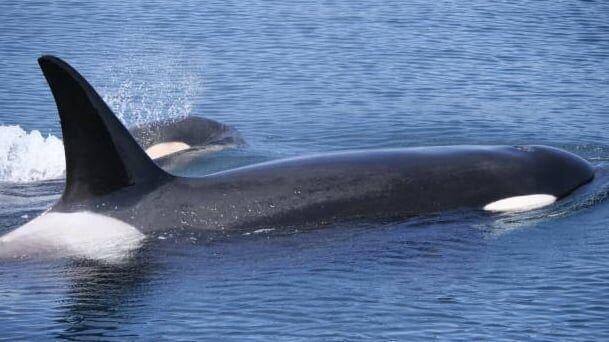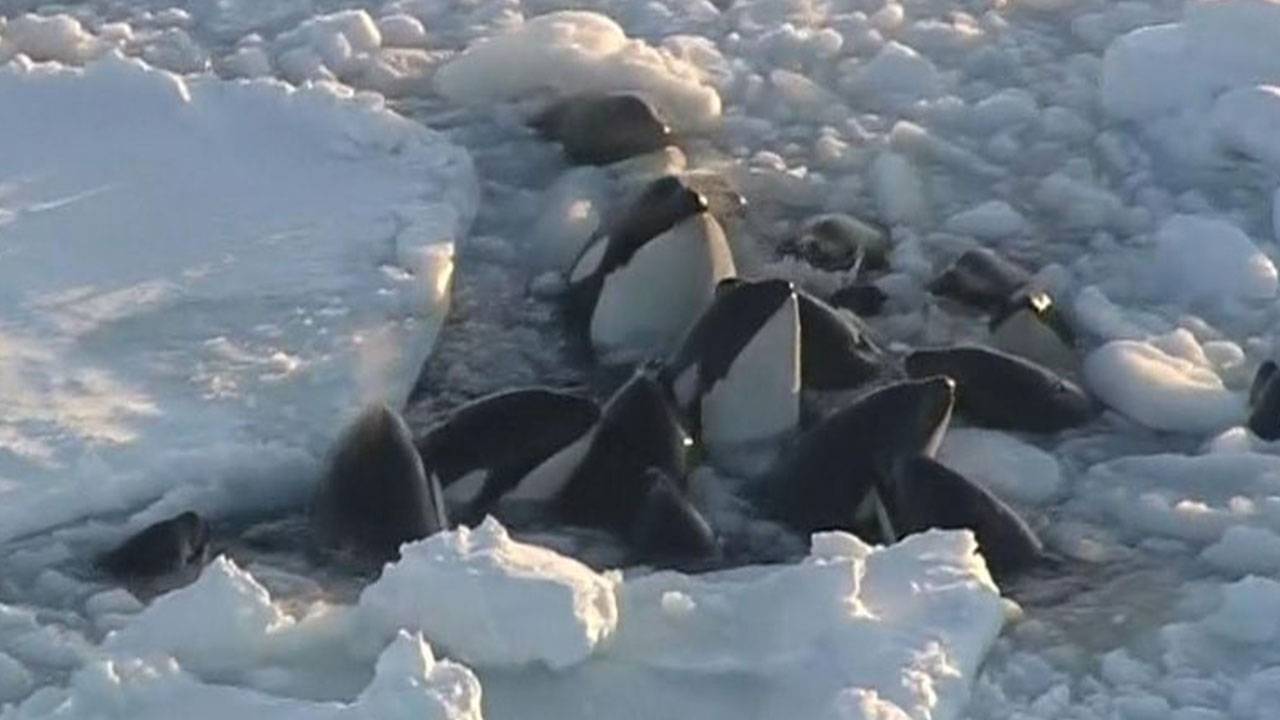In a dramatic turn of events off Japan’s northern island, a pod of killer whales found themselves entangled in a perilous situation as they became trapped in sea ice. The incident raised concerns among marine experts and sparked a collective effort to rescue the majestic creatures from the clutches of the unforgiving drift ice.

Killer Whales Trapped in Ice
In a compelling and urgent event off Japan’s northern island, a pod of ten killer whales became ensnared in a perilous situation, trapped within sea ice. This distressing incident unfolded as a significant concern for marine experts and prompted a swift and collaborative effort to rescue the magnificent creatures from the clutches of the unforgiving drift ice.
The entrapment of the killer whales sparked a global response, as scientists and environmentalists worked tirelessly to comprehend the circumstances leading to this predicament. The world anxiously watched, realizing the imminent danger these marine giants faced and the critical need for immediate intervention.

Reports revealed the intricacies of the rescue mission, detailing the challenges faced by the teams involved. The collaborative efforts of marine biologists, environmental agencies, and local authorities proved essential in navigating the icy waters and creating a pathway for the stranded orcas to escape.
Fortunately, news emerged that the killer whales successfully escaped the drift ice off Japan’s northern island. This marked a significant triumph for conservationists and highlighted the importance of international cooperation in addressing environmental crises.
The escape not only showcased the resilience of these marine creatures but also underscored the delicate balance of nature and the ongoing need for concerted efforts to protect our oceans. The incident serves as a stark reminder of the threats marine life faces and the collective responsibility to safeguard and preserve our planet’s diverse ecosystems.
Killer Whales Escape Drift Ice Trap off Japan’s Northern Island
The world held its breath as news emerged that the trapped killer whales had managed to escape the drift ice off Japan’s northern island. This turn of events brought relief and joy, emphasizing the effectiveness of the collaborative efforts invested in the rescue mission.
Reports detailed the strategies employed by the rescue teams and the challenges they overcame. The coordination between marine biologists, environmental agencies, and local authorities to create a pathway for the orcas to swim to safety showcased the importance of international cooperation in addressing environmental crises.

The escape of the killer whales marked a significant victory for conservationists and underscored the importance of ongoing efforts to protect our oceans. The resilience and adaptability of these marine creatures served as a testament to the intricate balance of nature and the need for ongoing efforts to protect our oceans.
Reports provided additional perspectives on the successful rescue, capturing the reactions of experts and local communities. The aftermath of the incident was explored, including measures taken to prevent similar occurrences and safeguard the marine ecosystem.
As reported, the safe escape of the killer whales became a symbol of hope and resilience. The broader implications of such incidents on marine conservation efforts and the imperative for proactive measures to mitigate the impact of climate change on marine habitats were examined.





